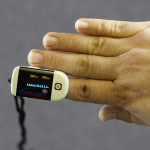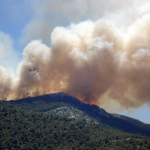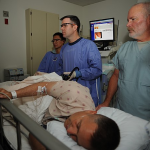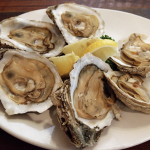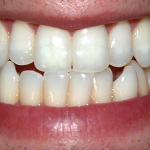Wegovy and Ozempic, both GLP-1 agonists, have taken the world by storm, providing a simple way to lose weight without changing our lifestyle. A new report in Science helps us understand what we do not know: the known unknowns of obesity. Let me summarize.
Disease
Another week, another disparity of care. In this case, it's attributable to a measure known to be flawed: pulse oximetry. Does the flaw lie solely in the tool – or how it is used? Let’s take a deeper dive into the latest study of healthcare disparity.
Once a long time ago, doctors made house calls. If you couldn’t reach the office, the doctor came to you. Telemedicine has been a pale but viable replacement. A new smartphone attachment brings a more helpful home visit closer to reality.
Wildfire smoke has been in the news this summer, with horrifying accounts of damage and chaos but little about public health. As a long-time student of environmental health and given the extensive reports of unhealthy air, I wondered why we have not heard about adverse air pollution impacts from these events, especially here in the crowded cities of the Northeast. Google reports no civilian deaths from the Canadian fires and only 1 in California this year.
The Collyer brothers, Homer and Langley, lived most of their adult lives in a New York City brownstone at the corner of 5th Avenue and 128th Street. Today, their home is a “pocket park,” and the phrase “Collyer Mansion” is firehouse slang for “a dwelling jammed rafter-high with junk.” Together, let’s learn a bit about hoarding.
It is increasingly clear that Artificial Intelligence (AI) is going to transform our lives in myriad ways, from weather prediction to military planning and in innumerable medical applications. I recently encountered first-hand a new, significant advance – the use of AI to improve the detection of lesions during colonoscopies.
A new study of associations between incident dementia and air pollution caught my attention because air pollution studies like this have been driving me toward dementia for decades. Let’s unpack their findings.
The consumption of raw oysters is being discouraged in the New York area, thanks to the appearance of Vibrio vulnificus, aka, the flesh-eating bacteria. Although Vibriosis is (thankfully) very rare, it can also be very serious, even deadly. The exceptionally warm ocean temperatures this summer have allowed the bacteria to spread northward, where there has been one confirmed death from raw oysters and two others from skin infections. Is there anything to worry about here?
Stressors, be they physical or spiritual, are often incited as causative factors in a variety of illnesses, including cancer. The effect of those stressors on our physiology can be passed on to our children, as studies of holocaust survivors have found. The integrated stress response (ISR) is a signaling network that bridges those stressors and the physiologic reactions within our cells. How can chemicals remember?
Shinrin-yoku, also known as a "forest bath," originated in Japan and it's believed to enhance one’s well-being while helping “connect” with nature. It involves immersing oneself in a forest or natural environment and mindfully engaging with the surroundings through the senses. Western medicine offers “nature prescriptions” – the walk with or without the mindfulness. Does it improve our health?
Good dental hygiene is extremely important to overall health. Even simple and inexpensive interventions, such as brushing, flossing and chewing sugar-free gum, can be highly effective.
The creation of sperm in mammals, known as spermatogenesis, is critically impacted by temperature. A very small increase results in a significant reduction in the little swimmers. Peto’s paradox points out that larger animals with more cells – and, therefore, a greater risk of mutation – have less chance of cancer than smaller animals. A new hypothesis connects these two seemingly unrelated dots.

